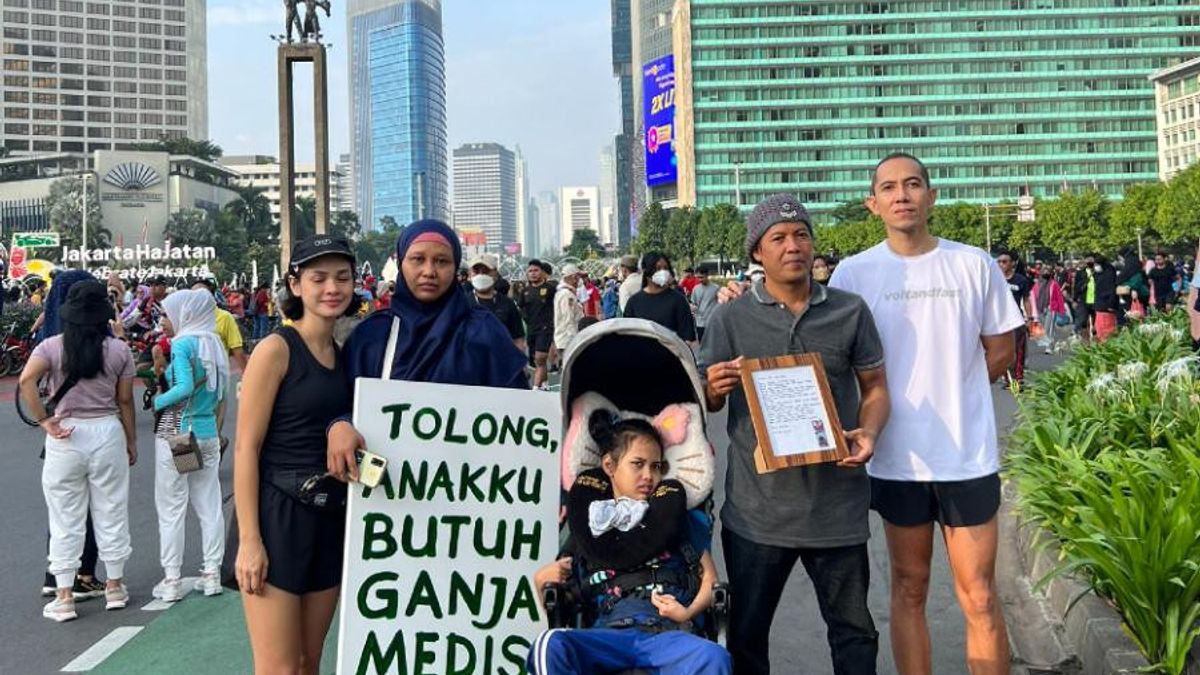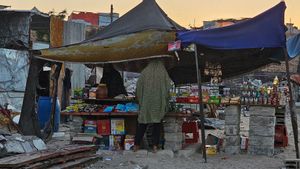JAKARTA – “One of the magical plants is the cannabis tree. The great benefits bestowed by God through this plant seem to disappear when a few people try to deny it by classifying this plant as a narcotic, or even further by giving the title "illegal goods". Negative perceptions that have been so deeply embedded in society, we should straighten it out together."
It was a welcoming speech written by Prof. Dr. Komaruddin Hidayat, in the book Hikayat Cannabis Tree: 12000 Years of Fertilizing Human Civilization published by Gramedia Pustaka Utama in 2011. The Muslim scholar who was the Chancellor of the Syarif Hidayatullah State Islamic University Jakarta, 2006-2010 and 2010-2015 in his foreword added that there was no God's useless creation.
"Humans do not want to understand, or act arrogantly so that they are unable to see and understand the benefits of God's creation for the good of humans themselves. One of them is related to the cannabis plant,” wrote Komaruddin.
Cannabis or which has the scientific name Cannabis sativa, in recent weeks has become a hot topic among Indonesian people, including its citizens. The reason is none other than the idea to legalize marijuana as a method of medical treatment.

It started with the demonstrative action of a mother from Sleman, Yogyakarta named Santi Warastuti in the midst of a Car Free Day (CFD) crowd at the HI Roundabout, Central Jakarta on Sunday, June 26, 2022. Santi and her husband pushed a toddler carriage occupied by their 14-year-old daughter, Pika. . They were carrying posters that read "Please, My Son Needs Medical Marijuana".
Pika has to sit in a stroller because she has cerebral palsy. It was the condition of the body weak withering, so unable to move. This disease is caused by paralysis of the brain as the main nerve center, which causes impaired muscle coordination, movement, and body coordination. In extreme conditions, people with cerebral palsy suffer from paralysis like Pika.
“Pika has been sick for seven years and has been taking seizure medicine for seven years. Seven years is not a short time for me,” said Santi in a dialogue on TVOne on Thursday night, June 30.
Ideas from AustraliaIn the interview, Santi said that when she first learned about medical marijuana, she was working for a foreigner in Denpasar, Bali. The foreigner then sent a photo of a drug used in his country for the treatment of people with cerebral palsy such as Pika.
“While outside, he sent me a photo of a bottle of syrup and said: Santi, this is used in my country for epilepsy medicine. Do you want me to take it?" Santi tells about her boss's offer, which makes her acquainted with medical marijuana.
Because the bottle in the photo says “marijuana”, Santi refuses to bring it because she knows the plant is banned in Indonesia.
Returning to Yogyakarta, Santi met a mother who also has a child with cerebral palsy. The mother, whom Santi had just met, treated her child with medical marijuana therapy. And he did that in Australia.
“From Denpasar, I returned to Yogyakarta. And over time he became acquainted with Ibu Dwi Pertiwi, the mother of Musa. He administered medical marijuana therapy to Musa in Australia. I see the development is very significant, the sleep pattern is good and the seizures are reduced. So I also want to give progress like that to my child," said Santi in the interview on TVOne.

Before taking a demonstrative action by raising a poster on CFD, Santi had taken more normative actions. He filed a lawsuit to the Constitutional Court to conduct a judicial review of Law Number 35 of 2009 concerning Narcotics.
The lawsuit was filed in November 2020 by Santi along with two other mothers who had the same problem as her. The three mothers challenged the explanation of Article 6 paragraph (1) letter a and Article 8 paragraph (1) of the Narcotics Law which prohibits the use of marijuana for medical purposes or health services.
Santi and the two mothers who were with her felt that they were constitutionally disadvantaged, because they were prevented from getting treatment for their child. The three mothers want the Constitutional Court to legalize marijuana for medicinal purposes.
But the "polite" manner was ignored for two years. So Santi had to scream so that her voice could be heard, and it proved to be successful. Santi was also invited to the House of Representatives to attend a Hearing Meeting with Commission III on June 30, in the hope that he would provide input. And finally the issue of the legality of marijuana for medical purposes in Indonesia rolled around, although not necessarily approved.
The English, Chinese, Japanese, Arabic, and French versions are automatically generated by the AI. So there may still be inaccuracies in translating, please always see Indonesian as our main language. (system supported by DigitalSiber.id)













